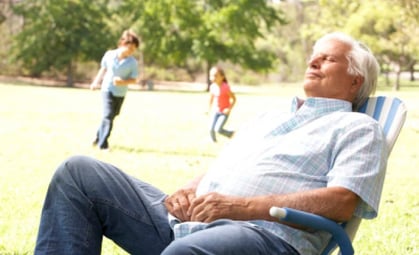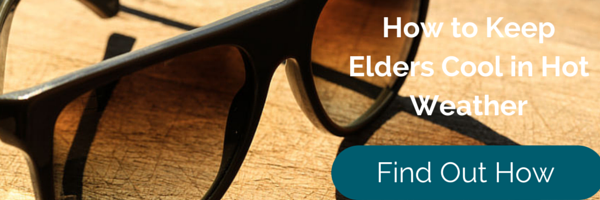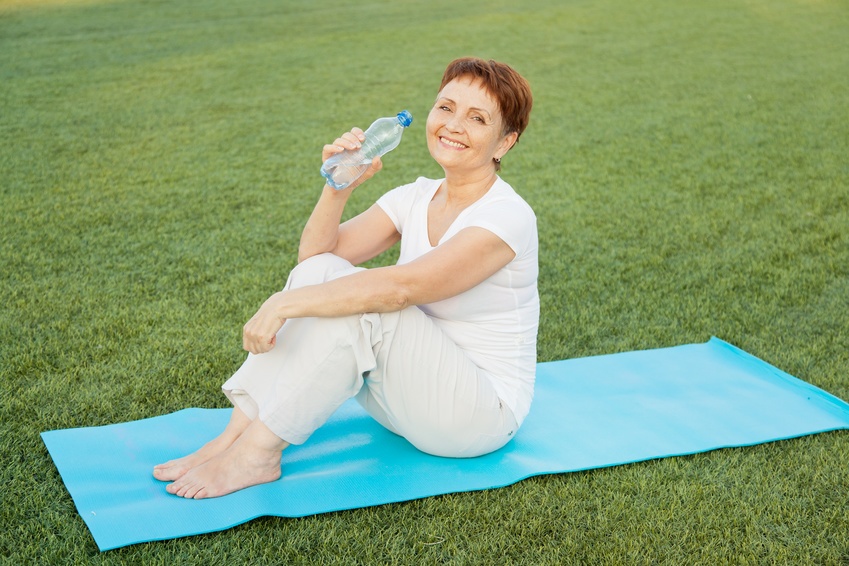In sunny, humid, buggy Cincinnati summers, it's important for seniors to stay healthy. It’s also important for them to stay safe and cool.
Did you know that an estimated 2,000 Americans die every year from causes related to extreme temperatures? One Centers for Disease Control and Prevention (CDC) study conducted between 2006 and 2010 found that about 31 percent of those deaths (a little over 600 people per year) came as a result of extreme heat. And seniors aged 65 and over are at more risk than the general population in such events.
Sweltering outside temperatures can cause people to suffer dehydration, heatstroke and sunstroke. Prolonged exposures to the sun can cause extreme sunburns and even increase the risk of developing aggressive skin cancers like basal cell carcinomas, squamous cell carcinomas and melanomas.
And summertime also brings with it the risk of insect bites and stings. Mosquitoes are the primary concern here, as they are known to be the prime transmission vector for common parasitic infections like malaria and Chagas disease, as well as less-common viral diseases like West Nile, yellow fever, Zika, Chikungunya and dengue fever.
Ticks can spread serious bacterial illnesses like Lyme disease and Rocky Mountain spotted fever. And, of course, wasp and hornets can be a real problem for any senior unfortunate enough to unwittingly step on or mow over a nest — especially those older people who have severe allergies to wasp venom.
Here are three summer safety tips you, or your older loved ones, should follow:
1. Protect yourself from sun exposure
It goes without saying that you should wear your SPF-30 sunscreen if you plan to be outside on a clear, sunny day. But did you know you should also wear it on hazy or partly cloudy day?
Ultraviolet radiation can (and does) penetrate through thin clouds, but the real problem is that some UV light is reflected back from the ground and then reflected back down again by haze. So, on hazy days, you can sometimes actually get more UV exposure than you otherwise would when there isn’t a cloud in the sky.
Ambient UV exposure also increases as altitude increases, so if you are hiking in hills or mountains or travelling to a high-altitude city, be doubly sure to take precautions. Wearing a wide-brimmed hat, UV-filtering sunglasses and light-colored clothing can help to keep your exposure down.
And, if you’re particularly fair-skinned, it’s probably not a bad idea to wear long sleeves and long pants even in the summer. Just be sure to wear clothes made with lightweight, light-colored, easy-breathing cloth and stay hydrated so that you can avoid sun stroke.
2. Drink plenty of water
Dehydration — and electrolyte imbalances associated with it — can cause all sorts of problems for seniors, including dizziness, confusion, falls, heart arrhythmias and even death.
In the summer, when it’s humid and hot, you can sweat out a lot of water just while going about your daily routine. Up your water intake accordingly!
And remember, avoid strenuous outside exercise or work during summer heat emergencies, unless you have ready access to plenty of drinking water, shade to rest in and (preferably) air-conditioned shelter close by.
3. Avoid the bugs
Keep mosquitoes at bay by applying a DEET-containing insect repellant spray and covering up exposed skin — especially in the early morning and early evening, when mosquitoes are most active and feeding.
Do not allow standing water to collect on your property. Mosquito larvae develop in standing, stagnant water. You can keep the local mosquito population down by draining flowerpots after rainstorms, cleaning out your gutters so that they flow freely, and installing pump fountains in lakes or ponds on your land.
If your property has a pool, treat it with chlorine to keep the water sanitary and free of mosquito larvae. And, if you entertain or eat outdoors on your deck or patio, burn citronella candles around the perimeter to repel mosquitoes.
You should avoid tall grass, keep your yard well-trimmed and wear long pants and socks to reduce the chance of being bitten by ticks, chiggers or scabies mites. And, if you go for a walk in the woods, stay on the trail. Don’t go in areas clogged with underbrush.
If you have a severe allergy to bee or wasp stings, make sure you carry an epinephrine pen and a rescue inhaler at all times, and understand how to use them. Make sure, too, that you always have a charged cell phone on you, so that you can summon help if you’re stung.
Follow the tips above to stay healthy and safe this summer.
If you’re a senior living in Cincinnati, summers are sometimes no picnic. Make sure that you take proper heat, sun and insect precautions. And stay in touch with your primary care doctor. Go for your annual checkups — without fail — to keep close tabs on your overall health!












